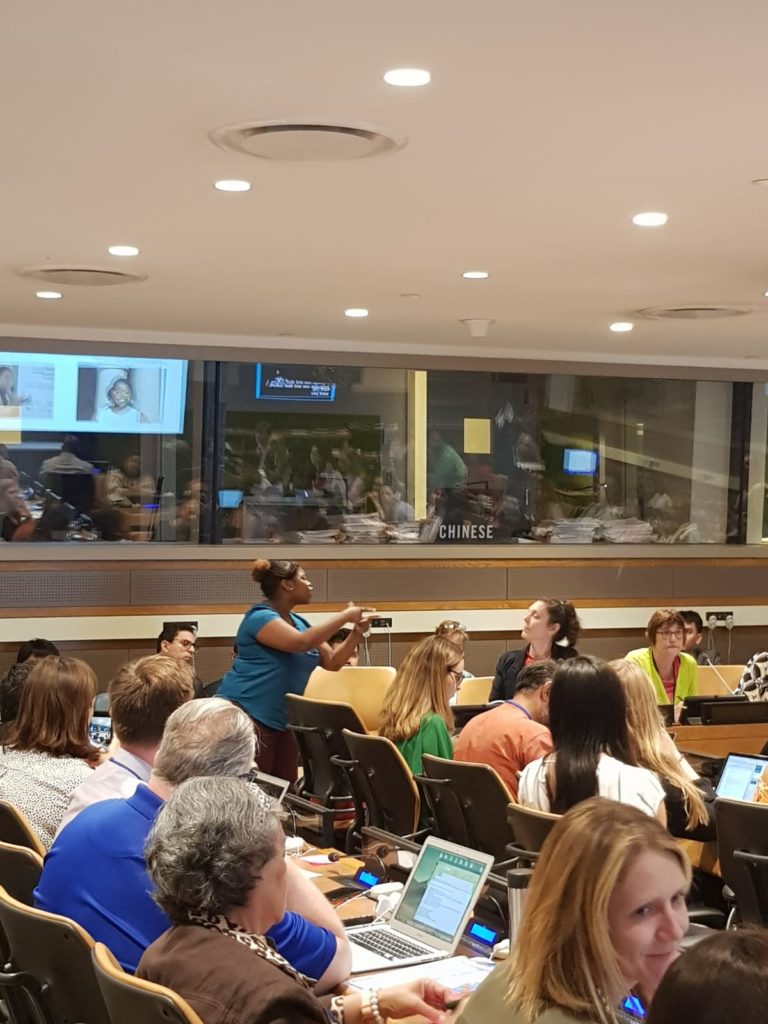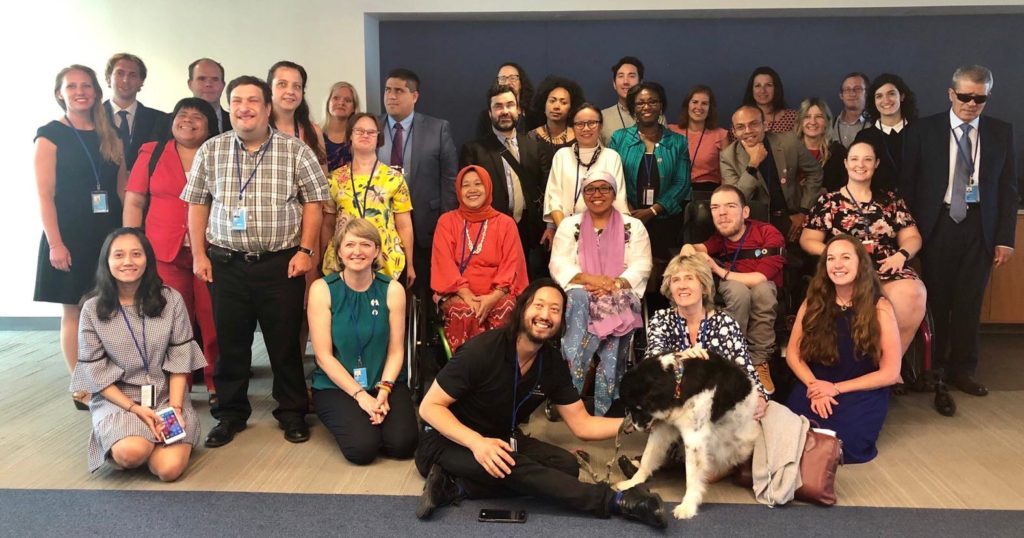Background
This year is particularly busy since two High-level Political Forums (HLPFs) are taking place at the United Nations in New York. The first was the HLPF under the auspices of ECOSOC (took place from July 9-18) and the second is HLPF under the auspices of the UN General Assembly – also called the SDG Summit (will take place from September 24-25).
The theme for the HLPF in July was “Empowering people and ensuring inclusiveness and equality,” particularly relevant for persons with disabilities and IDDC’s work. Fittingly, 80 representatives of organizations of persons with disabilities (DPOs) and disability NGOs attended the HLPF this year under the umbrella of the Stakeholder Group of Persons with Disabilities. Many IDDC organizations attended, including ADD International, CBM, DPOD, Humanity & Inclusion, Light for the World, and Sightsavers.
The set of Goals under review included:
- Goal 4 – Ensure inclusive and equitable quality education and promote lifelong learning opportunities for all;
- Goal 8 – Promote sustained, inclusive and sustainable economic growth, full and productive employment and decent work for all;
- Goal 10 – Reduce inequality within and among countries;
- Goal 13 – Take urgent action to combat climate change and its impacts
- Goal 16 – Promote peaceful and inclusive societies for sustainable; development, provide access to justice for all and build effective, accountable and inclusive institutions at all levels; and
- Goal 17 – Strengthen the means of implementation and revitalize the global partnership for sustainable development.
For the 2019 HLPF, 51 countries volunteered to give national reviews. Forty-one countries reported for the first time, including Algeria, Bosnia and Herzegovina, Burkina Faso, Cambodia, Cameroon, Central African Republic, Chad, Congo, Côte d’Ivoire, Croatia, Eritrea, Eswatini, Fiji, Ghana, Guyana, Iceland, Iraq, Israel, Kazakhstan, Kuwait, Lesotho, Liechtenstein, Mauritania, Mauritius, Mongolia, Nauru, New Zealand, Oman, Pakistan, Palau, Rwanda, Saint Lucia, Serbia, South Africa, Timor-Leste, Tonga, Tunisia, Turkmenistan, UK, Tanzania, and Vanuatu. Additionally, 10 countries reported for a second or third time, including Azerbaijan, Brazil, Chile, El Salvador, France, Guatemala, Indonesia, Philippines, Sierra Leone, and Turkey.
Why is the HLPF important?
The HLPF is the global platform for the follow-up and review of the implementation of the 2030 Agenda. It is where governments showcase their implementation efforts and also where governments, UN Agencies and stakeholders convene and share ideas. Importantly, there is space for stakeholders, including the right to present and have a seat at the table. Persons with disabilities are officially represented via the Stakeholder Group of Persons with Disabilities (the official mechanism for persons with disabilities at the UN in sustainable development processes.). The HLPF allows for persons with disabilities and their representative organizations to meet their government officials and pose questions in a way that is not always possible at the national level.
IDDC involvement
We were involved in and supporting a variety of events, including:
- Side Event: Stakeholder Group of Persons with Disabilities: “Reducing inequalities: a look at persons with disabilities” on July 10th
- Special event: “Participatory and Inclusive tools to build capacities in leaving no one behind” Maegan Shanks, Gallaudet University and Dr. Elizabeth Lockwood, CBM presented on the SDGs and Deaf Culture on July 11th
- Special event: Global Campaign for Education, Light for the World, Global Campaign for Education – United States and RESULTS: “Unifying the Playing Field: Local and Global Movements to Advance the Right to Education” on July 12th
- The IDDC Inclusive Education Task Group hosted a networking table during the HLPF
Let’s keep fighting for words to turn into action with disability inclusive development so no one is left behind.



